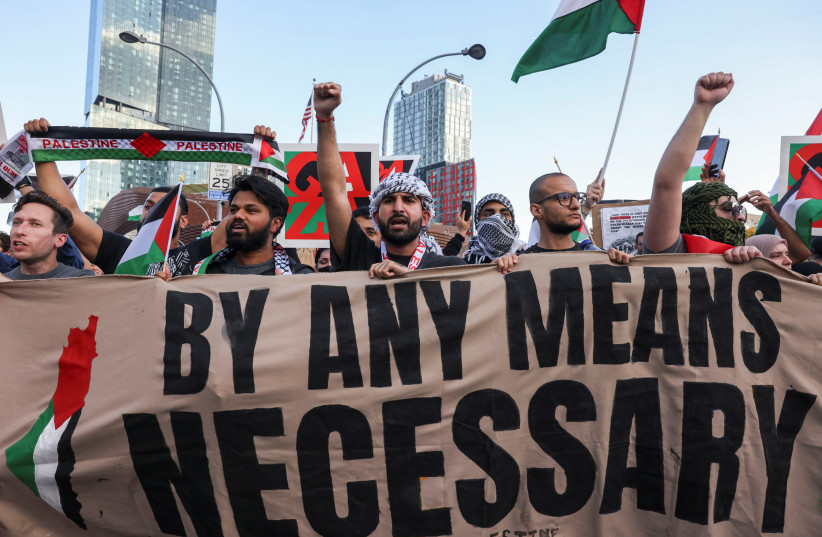Passover, like most events in the past six months, will not be the same this year. Pesach invites us to connect the timeless narrative of the Exodus to our modern plight.
American Jewry, committed to equal rights for all, has often used the Seder to uplift the causes of persecuted groups. Many American Jewish families still sing “Go Down Moses” in recognition of our community’s dedication to the Civil Rights Movement.
Some families place an orange on the Seder plate to call for greater inclusion of LGBTQ+ Jews in the community, as popularized by my former professor, Susannah Heschel. Long ago, in the 1970s and 1980s, the Passover Seder served as an occasion to discuss the plight of Jews in the Eastern Bloc.
Let Our People Go hits close to home this year
This year’s Pesach has an obvious connection to the headlines of the day: Let Our People Go. This year, far too many seats around Seder tables will be empty because our hostages remain trapped in Gaza. I encourage all of us to hold the hostages in our hearts as we recall Moses’s plea to Pharaoh and to mimic his relentlessness in securing the release of our people by continuing to raise awareness.
Furthermore, Pesach this year might be a time to discuss another disturbing issue: the alarming rise of antisemitism here in the United States and our need to confront it.

The Haggadah warns us that in each generation, enemies rise against the Jews and seek our destruction. The Torah itself reminds us of the precarious nature of Jewish history in the Exodus story: the Hebrews, having arrived in Egypt as the privileged guests of Pharaoh, are, within generations, subjected to bondage.
In the immortal words of scripture, “a new Pharaoh arose who knew not Joseph.” So, too, in the United States, a land at times considered the most hospitable and friendly to the Jewish people, political trends have turned against the Jews, with threats emerging from both the far-Right and the far-Left.
Through the Passover Seder, we fulfill the commandment to tell our children how God delivered us from the land of Egypt (Exodus 13:8). The story of the Exodus and its miracles may seem hard for some to relate to. No one is going to split the sea for us or afflict antisemites with boils or other plagues.
But we can draw inspiration from Exodus’s human elements, such as the midwives who refuse to drown the firstborn in the river, Moses’s confrontation with Pharaoh, and Miriam’s merit in the desert. Each of these actions reminds us that liberation, then and now, depends on us.
Around my Seder table this year, we will be reflecting on some of these themes. To the four questions, we will add some of our own:
• How do we celebrate our Judaism in the midst of rising antisemitism?
• How do we talk to our non-Jewish neighbors about antisemitism and Israel?
• What lessons can we draw from Jewish communities that survived existential threats before us?
• In light of the current situation, what is the best communal response we can adopt?
• What can each of us do?
Every Jewish generation since biblical times has faced foes and crises that felt overwhelming, sapped our collective strength, and made us feel isolated and on the precipice of distinction.
And yet, next week, in the year 5784, we will sit down with our families and retell the Passover story of how we triumphed over Pharaoh and went up from Egypt with God’s help.
The Passover Haggadah reminds us that b’chol dor vador omdim aleinu lechaloteinu, in every generation our enemies stand against us, ready to defeat us. But we are also reminded that, with courage and God’s help, we can always overcome our enemies.
The Haggadah also says that in every generation, each of us is obligated to see ourselves as if we ourselves had come out of Egypt. In every generation, we emerge victorious and liberated. By telling the Passover story, we also tell the younger generation: We are partners with Hashem in our redemption.
This year, we must take this message seriously. We must be active participants in combating the evil we face today and celebrating our people’s longevity and vitality.
Take notice of the enemies who wish to destroy us, and take heart that we will always be strong enough to win. This moment, now, is our generation’s turn to show our strength.
The writer is the CEO of the Conference of Presidents of Major American Jewish Organizations (COP), the recognized central coordinating body representing 50 diverse national Jewish organizations on issues of national and international concern. Follow him on X at @daroff.
